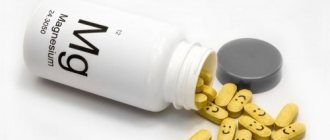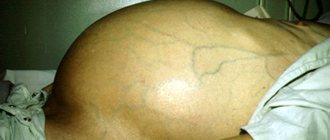Betahistine is a tablet drug. It is used to relieve symptoms that appear against the background of malfunctions of the vestibular apparatus associated with impaired functioning of the central nervous system.
Betahistine tablets, the instructions focus on this, are used to treat Meniere's syndrome. Typically, the disease is confirmed when problems with hearing function or coordination appear. Additional signs are frequent, causeless dizziness. In the acute stage, symptoms manifest as a stroke. If left untreated, a secondary attack can be life-threatening.
The drug is also used for symptomatic treatment of vestibular dizziness - vertigo. Its causes are most often inflammatory diseases of the inner ear, as well as traumatic brain injury, intoxication and metabolic disorders.
Description of the drug
Round betahistine tablets may be white or have a slight yellowish tint. Marble effect is allowed. One tablet may contain 8 mg, 16 mg or 24 mg of the active ingredient betahistine dihydrochloride. Excipients used in the composition of the medicine are indicated in the instructions for use.
The product is an analogue of histamine and is distinguished by its ability to relieve dizziness. After administration, it is completely absorbed into the gastrointestinal tract. Its effect is aimed at improving microcirculation and permeability of the capillaries of the inner ear. After taking it, blood flow increases and endolymph pressure normalizes. As a result, malfunctions in the functioning of the vestibular apparatus are eliminated, which reduces the frequency and intensity of dizziness. Additionally, a decrease in tinnitus and an improvement in auditory perception are noted.
The drug Betagistin - reviews
Ksyusha K.
For high blood pressure, which is accompanied by dizziness and headache, I take Betahistine SZ in combination. The drug is very effective, designed to improve the functioning of the vestibular apparatus, and I want to note that it does its job perfectly.
Glazunova I.
Good results in a short time! My osteochondrosis is incipient, so the treatment turned out to be simple. I follow the daily norm and adhere to proper nutrition for overall good health.
Nellie
The drug is effective. Helps with properly selected treatment. Yes, side effects are possible, but they are present in every serious drug. Therefore, it is recommended to use medications after prescription and permission from a doctor.
Olga
For many years I suffered from noise in my head. No medications helped. And, oh miracle! Cheap betagestin eliminated the noise from the first days of taking it. It also improved my sleep. I didn’t notice any side effects after taking it for a month.
Valentina
Betahistine just resurrected me. In winter, the back of my head fell on the ice. I began to suffer from headaches and my blood pressure increased greatly. Although the pressure was normal before. The doctor prescribed this drug, and it stopped giving me headaches and my blood pressure returned to normal. And I also think it is anti-allergenic. In general, 3 in 1. I didn’t even realize that this could happen. But everything is individual.
Elena
A neurologist prescribed me betahistine 24 mg, I took the first tablet and felt very bad, I can’t describe the condition, severe tachycardia, headache, and I started taking half a tablet 2 times a day, I felt fine, I’ve been taking it for a month now, I recently forgot to drink it and it started withdrawal syndrome, when I took the pill I immediately felt better
Anonymous791154
https://otzovik.com/review_3289318.html
Attention!
Before using medications, consult a specialist!
Advantages:
- They are helping
Flaws:
- Haven't noticed yet
I was just dying after work from fatigue and headache, after 4 days of taking it I feel improvements, the pills simply save me.
olala210
https://otzovik.com/review_4833930.html
Attention!
Before using medications, consult a specialist!
Advantages:
- helps with dizziness
- inexpensive
Flaws:
- No
About a year ago I fell on the ice while skating and didn’t land well. Diagnosed with a mild concussion.
Everything seemed to have passed, but a few months ago I started feeling dizzy in the morning. Makes it difficult to concentrate. And if I’m still driving, then it’s a total disaster.
The doctor prescribed a course of Betahistine or Betaserc. They are similar, only the second one is much more expensive.
I bought Betahistine for 58 rubles. Sold without a prescription.
I took 1 tablet 2 times a day. My head has become clearer and I am no longer dizzy. The effect appeared almost immediately. I took the course for 2 weeks and feel better. I haven’t noticed any side effects, unless I feel weak and want to sleep more.
Yes, and a huge plus, this medicine is not prohibited from being taken while driving.
The instructions for the drug contain many recommendations and contraindications, so it is not a completely harmless drug. Be sure to take as prescribed by your doctor!
Addianc
https://otzyv.expert/tabletki-legko-usvaivayutsya-i-prinosyat-oblegchenie-uskoryayut-vospriyatie-informacii-2183688
Advantages:
- Cheap
- increases attention
- reduces headaches.
Flaws:
- There are none
Good day. Recently I had a chance to try Betahistine 16 mg tablets. The package contained 30 tablets. The course was taken with the drug piracetam. I was very pleased with the effect and impact of these tablets on the brain. I was very tired and had to work hard, which affected my nerves and memory. I couldn’t remember basic things, I forgot where I put things in the room.
After reading on the Internet, I couldn’t remember the names of cities and foreign names. Not read a long time ago, but I read it yesterday and spent half a day remembering it. Thoughts were spinning out of control; I had to make a huge effort to concentrate. In general, I am not a connoisseur of pills and all kinds of drugs. But these ones, I’ll tell you, just resurrected me. After the first injection of peracetam and drinking a tablet of betahistine 16 mg. I felt like the constant headache just disappeared within a few hours.
Involve me in some kind of conversation and I easily switched to the topic of conversation without any effort on myself. Honestly I was shocked. Not only did I not expect such a quick reaction from my brain, it seemed to me that I simply didn’t have such abilities. I thought about everyday thoughts easily and naturally, and just as easily I coped with processing new information from the Internet. This has never happened to me before. But I was calm, attentive and focused. My impression of the reception was simply admiration. There has never been a better medicine in my body.
As for the tablets, these are simple small tablets, round and flat. They taste like salty chalk, with a distinct sourness and dissolve very quickly in the mouth. They have instructions.
Substade
https://otzyv.expert/eto-moe-spasenie-810771
Advantages:
- helps quickly
- it's inexpensive
Flaws:
- sometimes heartburn occurs
After suffering a stroke at the age of 18, after which coordination of movements was impaired and Meniere's syndrome manifested itself, I periodically “lead”, so much so that I hit the wall. In general, the dizziness is severe and just comes out of nowhere. I take the drug as soon as I feel unwell—on the doctor’s recommendation, of course. Literally on the second day I felt better and the nausea went away. I take it in courses - even after the dizziness stops, for at least 3 weeks. This is my lifesaver!
Tamara
https://www.medcentre.com.ua/medicamenty/betagistin.html
Betahistine is a very good drug, and most importantly a complete analogue of the drug Betaserc. By the way, which costs several times more than Betagistine. So, you can safely buy Betagistin and it is in no way inferior to Betaserc, naturally in price. At first I took the expensive Betaserc, but then a friend suggested Betahistine. How surprised and amazed I was that they have the same composition, but the price, excuse me, is significantly different. How can you fool people like this, and doctors are in cahoots if they prescribe expensive drugs when there are analogues that are much cheaper. I am very pleased with Betahistine.
Taking medication
Positive results appear in the first days after starting treatment with the drug. After two weeks of use, a stable therapeutic effect is recorded. When treated with betahistine for several months, the condition of patients with Meniere's syndrome improves significantly.
Understanding what betahistine is prescribed for, you need to know how to take the tablets. The dosage is prescribed individually by the doctor, taking into account the patient’s condition. The maximum daily dose is 48 mg. Taking tablets is indicated during meals. 2-3 times a day. The recommended course duration is 2 - 3 months. Sometimes periodic treatment is carried out.
Correction during treatment is usually not required. The effectiveness of the drug decreases when combined with other antihistamines. Betahistine does not have sedative properties, so there are no restrictions regarding driving a car during treatment. It is also allowed to work on various complex mechanisms without any restrictions.
Weight gain while taking antipsychotics
Many factors contribute to weight gain in patients with mental disorders, particularly psychosis. A sedentary lifestyle, unhealthy eating habits, genetic susceptibility and antipsychotic medications are considered to be the main contributing factors to weight gain here. Unfortunately, only one third to half of patients have adequate control of the metabolic side effects of antipsychotics.
In addition to weight gain, antipsychotics also affect glucose metabolism, increase cholesterol and triglyceride levels, and cause hypertension, leading to metabolic syndrome. Metabolic syndrome increases the risk of developing diabetes by five times and cardiovascular disease by two times over the next 5-10 years after diagnosis of this syndrome. The prevalence of metabolic syndrome is high in schizophrenia. A meta-analysis of 77 publications showed an overall prevalence rate of this syndrome in schizphrenia of 32.5%. A similar meta-analysis conducted in patients with first-episode schizophrenia found lower prevalence rates of metabolic syndrome (~10%). In other words, during treatment with antipsychotics, the number of overweight patients increases almost 3 times. However, the rate of obesity in the first psychotic episode remains high - 22%.
Antipsychotic-induced weight gain is a major problem in the treatment of patients with mental disorders. Most antipsychotics cause weight gain, but olanzapine and clozapine appear to have the highest risk of this side effect.
Dynamics
Weight increases rapidly during the initial period of therapy with these drugs, almost immediately after starting antipsychotics. Subsequently, patients also continue to gain weight. There is rapid weight gain in the first few weeks after starting antipsychotic medications. The rate of weight gain then gradually decreases and levels off over several months.
The time taken to plateau varied for each antipsychotic, ranging from 4 to 9 months for olanzapine and 42 to 46 months for clozapine. This indicates that patients will continue to gain weight for 1–4 years. taking antipsychotics.
Factors associated with rapid initial weight gain were younger age, lower baseline body mass index (BMI), greater response to antipsychotic medications, and increased appetite. Rapid weight gain of more than 5% in the first month is the best predictor of significant long-term weight gain.
Complications
Researchers have shown that weight gain and obesity also lead to increased cardiovascular and cerebrovascular disease, decreased quality of life, and poor medication adherence.
Age-related aspects of weight gain while taking antipsychotics
Unlike adults, children are physically and emotionally more vulnerable to the side effects of medications.
Children are particularly vulnerable to antipsychotic-induced weight gain. Atypical antipsychotics (SGA) are effective for psychiatric disorders in children, but their benefits are limited by the risks of both metabolic and neurological side effects. Weight gain is one of the most bothersome side effects in children, with up to 80% of children experiencing significant weight gain. Adolescents experienced greater weight gain than older patients. Patients with autism treated with antipsychotic drugs had greater weight gain. A higher tendency to gain weight is also observed in patients with schizophrenia.
Comparative assessment of the effect of antipsychotics on weight
Clozapine, olanzapine, thioridazine, sertindole, chlorpromazine, and risperidone have been reported in the literature to cause significant weight gain ranging from 4.45 to 2.10 kg. Also note that all antipsychotic drugs, except haloperidol, lurasidone and ziprasidone, cause weight gain. Olanzapine and zotepine cause significantly more weight gain than most other antipsychotics. Another meta-analysis found that olanzapine and clozapine caused the greatest weight gain, while quetiapine, risperidone, and sertindole caused intermediate effects on weight. Moderate to low levels of weight gain were observed with aripiprazole and amisulpiride. Recent evidence suggests that the new antipsychotics asenapine, iloperidone, paliperidone, and lurasidone cause significant weight gain. Clinically significant weight gain of more than 7% was caused by all drugs except lurasidone. It is worth reminding readers of my Blog that clozapine, the drug with the greatest risk of weight gain, is also the only antipsychotic currently licensed for treatment-resistant schizophrenia. Similarly, olanzapine, which ranks highly in terms of effectiveness, also carries a higher risk of weight gain than most other antipsychotics.
Etiology
Genetics
Genetic polymorphisms may explain individual differences in AIWG. A recent meta-analysis by Zhang et al. (2016), Identified 13 single nucleotide polymorphisms from nine genes significantly associated with AIWG. Single nucleotide polymorphisms associated with the ADRA2A, DRD2, 5-HTR2C, and MC4R genes showed the largest effect sizes, indicating that candidate genes for weight gain are also associated with the receptors through which antipsychotics exert their therapeutic effects.
Pathogenesis
Receptors
The amount of weight gain depends on the type of antipsychotic and the individual patient. The high likelihood of weight gain when taking antipsychotics is associated with their actions on serotonin 5-HT2A and 5-HT2C, dopamine D2 and D3, histamine H1 and muscarinic M3 receptors. The different effects on weight are explained by the different affinities of the drugs for these receptors.
Hormones
Antipsychotics affect neuropeptides associated with appetite control and energy metabolism. Leptin and adiponectin are adipokines produced in white adipose tissue that are involved in the pathogenesis of antipsychotic-induced weight gain (AIWG). Increased leptin levels and decreased adiponectin levels have been demonstrated with short- and long-term olanzapine treatment. Ghrelin, which acts on the arcuate nucleus of the hypothalamus to increase food intake and adipose tissue deposition, is also affected by antipsychotics. Changes in leptin, adiponectin, and ghrelin levels are hypothesized to be due to direct drug effects and not secondary to weight gain.
On the other hand, the effects of antipsychotics on lipid and glucose metabolism have been associated with their effects on weight gain and obesity, leading to insulin resistance and consequent increased release of triglycerides and very low-density lipoproteins from adipocytes.
There is also evidence that antipsychotic drugs increase the expression of sterol regulatory element binding protein (SREBP) and very low-density lipoprotein (VLDL) genes.
Therapy
Personal selection of antipsychotic drugs in accordance with the individual characteristics of the patient and careful monitoring of weight and other metabolic parameters are the best prevention of weight gain. Switching therapy to a drug with less tendency to cause weight gain is an option to overcome this situation, but carries the risk of relapse of the mental disorder. Non-drug therapies, such as regular consultations with a nutritionist, special exercise programs, cognitive training and behavior change strategies, are equally effective both when working individually and in groups with patients.
Metformin is one of the drugs that is used for weight loss, however, in my opinion, it should be prescribed if the level of glycated hemoglobin is elevated. Metformin has the greatest evidence of effectiveness, while topiramate and reboxetine may also be effective. These drugs prevent or treat weight gain through various mechanisms. For example, metformin and rosiglitazone improve insulin resistance, while aripiprazole and metformin reduce lipid levels.
Metformin is an antihyperglycemic agent that has been used for many decades. It exerts its effects by inhibiting hepatic gluconeogenesis and improving insulin sensitivity in skeletal muscle via adenosine monophosphate kinase. It also reduces low-density lipoprotein cholesterol and triglyceride levels. The main mechanism for weight loss here may be reduced insulin resistance and appetite suppression. Data show that metformin leads to clinically significant weight loss in approximately half of patients.
The antiepileptic drug topiramate has shown promising results in the treatment of AIWG. Topiramate exerts its weight-loss effects by stimulating lipoprotein lipase while inhibiting carbonic anhydrase and lipogenesis. It also suppresses appetite and increases satiety. Low baseline thyrotropin hormone levels predicted the amount of weight gained, and topiramate was particularly effective in reducing weight gain in this subgroup. Using topiramate 100 or 200 mg has shown a dose-response relationship for weight loss. There is evidence that topiramate may have a therapeutic effect on psychotic conditions, which may be explained by the antagonism of glutamate-induced excitotoxicity at the α-amino-3-hydroxy-5-methyl-4-isoxazolepropionic acid (AMPA) and kainate receptors.
Norepinephrine reuptake inhibitors (NRIs) such as reboxetine act by inhibiting the reuptake of norepinephrine. They are prescribed to reduce appetite, thereby causing weight loss. The study of atomoxetine did not yield positive results. The cardiovascular side effects of changes in blood pressure and heart rate caused by NRIs may interfere with the weight loss benefits of this group of drugs. The reboxetine-betahistine combination showed a clinically significant attenuation of olanzapine-induced weight gain. Betahistine is a histaminergic H1 receptor agonist and H3 antagonist that has been studied as a co-treatment for olanzapine-induced weight gain. The weight-loss potential of betahistine is due to its action on the hypothalamus and liver to induce thermogenesis and reduce food intake. An additional benefit of taking this drug is a decrease in Epworth sleepiness scores during treatment.
The exact mechanism of action of the new antiepileptic drug zonisamide is unknown. It may act by altering the threshold for rapid voltage-dependent inactivation of sodium channels. It also reduces the sustained high-frequency firing of action potentials and inhibits low-threshold T-type calcium channels in neurons. The researchers demonstrated that zonisamide resulted in a modest but persistent reduction in AIWG.
GLP-1 is a gut hormone synthesized in the intestinal mucosa. GLP-1 stimulates glucose-induced insulin secretion in the pancreas and inhibits glucagon secretion. In addition, it reduces appetite and food intake by activating central and peripheral GLP-1 receptors. A meta-analysis found that GLP-1 reduced weight in obese diabetic and nondiabetic patients compared with other antidiabetic drugs, including metformin.
Diethylpropion and phentermine are dopamine agonists that stimulate dopamine secretion. They are postulated to increase energy expenditure, leading to weight loss. Both of these drugs are indicated for the short-term treatment of obesity. However, these two drugs have not been studied for AIWG.
Amantadine increases the synthesis and release of dopamine with some inhibition of dopamine reuptake. It is also an N-methyl-d-aspartate receptor antagonist. One study found that amantadine 100–300 mg was effective in attenuating or promoting weight loss in patients who had olanzapine-induced weight gain.
H2 receptor antagonists such as famotidine and nizatidine are thought to reduce weight by suppressing appetite caused by elevated cholecystokinin levels. An open-label study found that nizatidine treatment resulted in significant weight loss and this was correlated with leptin levels.
The glucocorticoid and progesterone antagonist mifepristone is effective in reducing weight gain in patients receiving risperidone or olanzapine. Modafinil exerts its effect by stimulating monoaminergic receptors. One RCT found that modafinil resulted in significantly less weight gain compared with placebo in patients treated with olanzapine. Although orlistat is FDA approved for weight loss, there is no evidence that it is effective against AIWG.
Non-pharmacologic strategies include cognitive and behavioral psychotherapy techniques, nutritional counseling, and exercise. Cognitive strategies include understanding eating behavior and physical well-being. Behavior management includes training in problem solving, goal setting, social support, and monitoring exercise and eating habits. Dietary counseling includes a reduction of 500–1000 kcal/day from the existing diet and a reduction in dietary fat intake to 30% of energy intake. Exercise includes 150 minutes of moderate (55–69% of maximum heart rate) exercise per week.
Treatment regimen
Just as extrapyramidal side effects lead to poor adherence to FGA therapy, weight gain is a cause of nonadherence to SGA treatment. However, there is little direct evidence linking weight gain to poor adherence to treatment. Obese patients are 13 times more likely to stop taking medications due to weight gain than nonobese patients. This was also reported in the CATIE trial, where more patients discontinued olanzapine due to weight gain compared with other drugs, despite olanzapine having the lowest overall discontinuation rate.
On the other hand, it has also been noted that weight gain is an indicator of better response to antipsychotics, and improved compliance can be expected as a result. A recent study examining factors associated with poor adherence in patients with bipolar disorder reported no differences in adherence between different patient groups.
The quality of life
Weight gain affects the quality of life and self-esteem of patients. Waist circumference and body mass index (BMI) predict poor health-related quality of life in patients receiving antipsychotic medications. Weight gain, cognitive side effects, and sexual dysfunction are significantly associated with poor satisfaction with quality of life and distress, especially in women. Changes in self-identity follow changes in appearance as a result of weight gain.
There is evidence that weight gain in patients is a concern for caregivers. A mail survey of relatives of patients with schizophrenia found that relatives rated weight as the second most problematic side effect. The biggest concerns were somnolence and sedation.
Researchers believe that adherence to treatment is determined by patients' assessment of the benefits of treatment (including its side effects) and the risk of relapse, as well as the cost of treatment.
Contraindications
Absolute contraindications are hypersensitivity to the active substance and other components of the product. Treatment with the drug is not prescribed until adulthood. The drug is contraindicated during pregnancy and lactation, since there is no data on its effect on the fetus and newborn child. Betahistine should not be used if you are lactose intolerant. Caution should be exercised when prescribing medication when the following diseases are diagnosed:
- Peptic ulcer of the stomach or duodenum.
- Pheochromocytoma.
- Bronchial asthma.
It is not recommended to use betahistine, the instructions for use indicate this, in combination with antihistamines. In addition, it is recommended to refuse the product if:
- Hives.
- Arterial hypotension.
- Allergic rhinitis.
Since studies on the reaction to the drug in renal and hepatic failure have not been conducted, it is recommended to refuse treatment for these pathologies.



